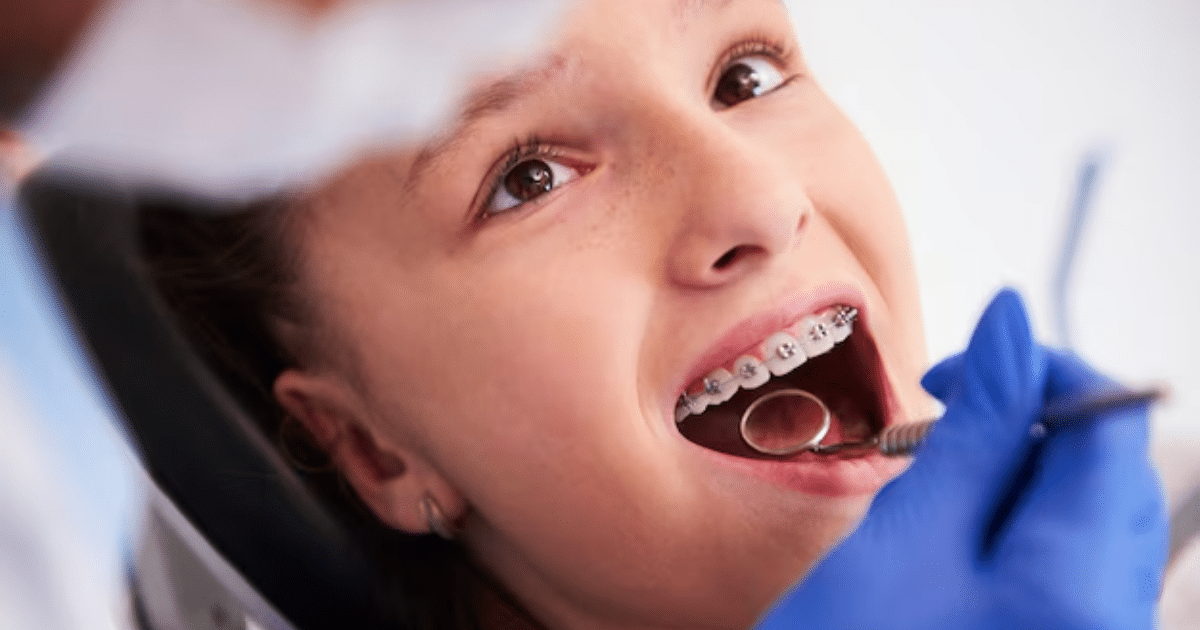How to Help Your Teen Adjust to Life with Braces?

Getting braces can be a major milestone for teens, but it’s not without its challenges. As your child embarks on their journey with braces, you might wonder how to best support them through this adjustment period.
The transition to life with braces involves more than just a change in their smile; it also means adapting to new routines and managing discomfort.
Teens’ orthodontics can be a bit overwhelming, but with the right strategies, you can help make this time smoother and less stressful.
In this blog, we’ll explore practical tips, from easing the initial discomfort to maintaining excellent oral hygiene. We’ll also cover how to support their emotional well-being and navigate dietary changes.
By understanding and addressing these key areas, you’ll be well-equipped to help your teen adjust to their new braces and embrace their new smile with confidence.
Understanding the Adjustment Period
What to Expect in the First Few Weeks with Braces?
When your teen first gets braces, they may experience a variety of adjustments. Here’s what to expect:
- Soreness: It’s common for the teeth and mouth to feel sore initially as the braces start to shift the teeth into place.
- Discomfort: The brackets and wires might cause some discomfort in the mouth and cheeks. This feeling will decrease over time.
- Speech Changes: Your teen might notice a slight change in their speech until they get used to having the braces in their mouth.
Common Issues Teens Might Face
Teens often face these common issues during the adjustment period:
- Irritation: Brackets and wires can cause irritation on the inside of the cheeks and lips.
- Difficulty Eating: Eating may be challenging initially due to soreness or difficulty chewing.
- Self-Consciousness: Teens may feel self-conscious about their appearance, which is normal but should be managed with reassurance.
Practical Tips for Managing Discomfort
Foods to Avoid and Why
Certain foods can aggravate discomfort or damage braces. It’s best to avoid:
- Sticky Foods: Candy and gum can stick to the braces and cause them to loosen.
- Hard Foods: Nuts, popcorn, and hard candy can break brackets or wires.
- Crunchy Foods: Foods like raw carrots or hard crusts can increase discomfort and damage braces.
How to Use Orthodontic Wax and Other Pain-Relief Methods?
Orthodontic wax and pain relievers can help manage discomfort:
- Orthodontic Wax: Apply a small amount of wax to the brackets and wires to create a protective barrier and reduce irritation.
- Pain Relievers: Over-the-counter medications like ibuprofen can alleviate pain. Ensure you follow the dosage instructions and consult with your orthodontist if the pain persists.
When to Take Over-the-Counter Pain Relievers?
Use over-the-counter pain relievers when:
- Persistent Pain: If discomfort continues beyond a few days, pain relievers can help.
- Severe Soreness: For significant soreness that affects daily activities, consider using pain relievers to provide temporary relief.
Establishing a Good Oral Hygiene Routine
Importance of Brushing and Flossing with Braces
Proper oral hygiene is crucial during orthodontic treatment:
- Brushing: Brush after every meal to remove food particles and plaque from around the brackets and wires.
- Flossing: Daily flossing is essential to clean between the teeth and under the wires, which helps prevent cavities and gum disease.
Recommended Oral Hygiene Products
Use specific products to maintain oral health:
- Soft-Bristled Toothbrush: A toothbrush with soft bristles helps clean around brackets without damaging them.
- Orthodontic Floss Threader: This tool makes it easier to floss between teeth and around wires.
- Antimicrobial Mouthwash: Using mouthwash helps reduce plaque and maintain oral health.
Tips for Cleaning Around Brackets and Wires
Effective cleaning around braces involves:
- Thorough Brushing: Brush each tooth individually, focusing on the areas around the brackets and wires.
- Careful Flossing: Use floss threaders or picks to clean between the teeth and around the braces.
Supporting Emotional Well-Being
Addressing Self-Consciousness and Body Image Issues
Teens might feel self-conscious about their braces. To support them:
- Encouragement: Reassure them that braces are a temporary phase leading to a beautiful smile.
- Positive Reinforcement: Focus on the benefits of the treatment and encourage a positive attitude.
Encouraging Positive Attitudes and Patience
Help your teen stay positive and patient:
- Celebrate Progress: Acknowledge and celebrate milestones in their treatment journey.
- Be Supportive: Offer encouragement and remind them of the long-term benefits of braces.
How to Provide Emotional Support and Encouragement?
Offer emotional support by:
- Listening: Hear out their concerns and feelings about the braces.
- Providing Reassurance: Offer reassurance about the treatment process and end results.
Navigating Dietary Changes
Recommended Foods and Snacks
Certain foods are better suited for those with braces:
- Soft Foods: Yogurt, mashed potatoes, and smoothies are easy on the braces.
- Soft Fruits: Bananas and applesauce are gentle and nutritious choices.
How to Make Braces-Friendly Meals Appealing?
Keep meals enjoyable by:
- Creative Cooking: Use soft sauces and blends to add flavor to braces-friendly meals.
- Involvement: Let your teen help with meal planning to ensure they are happy with the food choices.
Handling Social Situations Involving Food
In social settings, help your teen by:
- Planning Ahead: Discuss suitable food choices before events.
- Being Prepared: Equip them with strategies for avoiding hard or sticky foods during social gatherings.
Dealing with Orthodontic Emergencies
What Constitutes an Orthodontic Emergency?
Orthodontic emergencies include:
- Loose Brackets or Wires: Issues that can cause pain or affect treatment.
- Severe Discomfort: Unmanageable pain that requires immediate attention.
How to Handle Common Issues?
For common issues:
- Use Wax: Apply orthodontic wax to cover sharp edges and alleviate discomfort.
- Temporary Fixes: If a bracket is loose or a wire is broken, use wax and avoid irritating foods until you can see the orthodontist.
When to Contact the Orthodontist?
Contact the orthodontist for:
- Urgent Problems: Significant pain, broken brackets, or loose wires.
- Persistent Issues: Ongoing discomfort or problems that cannot be resolved at home.
Communication with the Orthodontist
Importance of Regular Check-Ups
Regular appointments are key:
- Monitoring Progress: Check-ups ensure the braces are working as planned and allow for necessary adjustments.
- Addressing Issues: They provide an opportunity to discuss any concerns or problems with the orthodontist.
Questions to Ask During Appointments
Ask these questions to stay informed:
- Treatment Progress: Inquire about the progress and expected duration of the treatment.
- Care Tips: Ask for additional tips on managing discomfort and maintaining oral hygiene.
How to Address Concerns About the Braces Process?
Discuss concerns openly:
- Communicate Issues: Share any problems or concerns about the braces process with the orthodontist.
- Seek Advice: Request advice on how to handle any challenges or adjustments needed during the treatment.
Adjusting to life with braces can be a challenge, but with the right strategies, your teen can manage it smoothly. By understanding the initial adjustment period, following practical tips for discomfort, and establishing good oral hygiene, you can support them through this transition. Address emotional and dietary changes positively, and ensure regular communication with the orthodontist. With patience and encouragement, braces can be a positive step towards a healthier, more confident smile.


